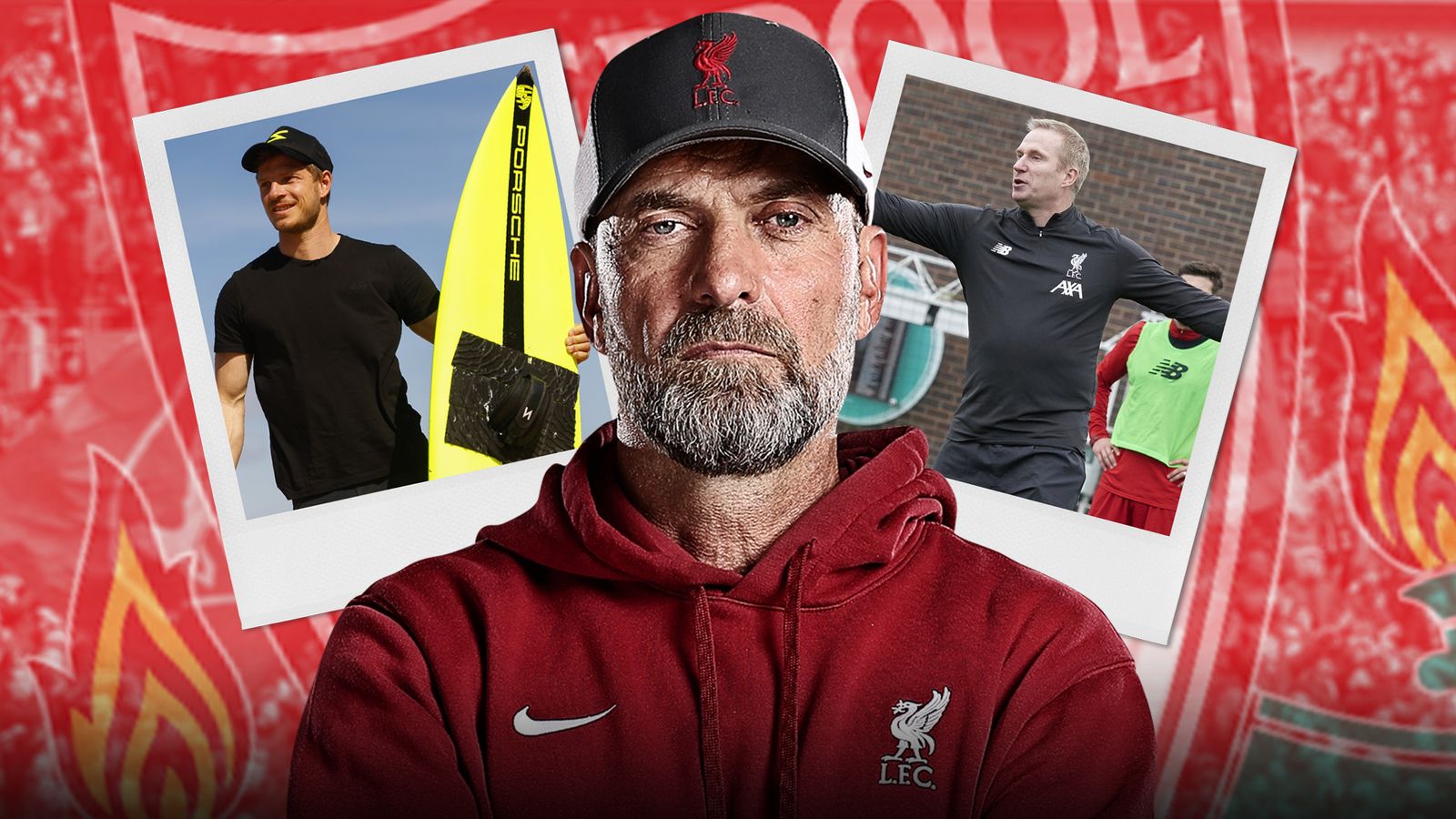Liverpool FC has entered a new chapter with the appointment of a fresh manager. This transition follows Jürgen Klopp’s impressive yet demanding tenure. Klopp’s high-pressing game earned Liverpool numerous accolades, but it also had its downsides. With a new philosophy on the pitch, fans are eager to see how tactics evolve.
Klopp’s Legacy: High-Pressing Dominance and Its Limitations

Under Klopp, Liverpool became known for their relentless pressing and pace. This aggressive style led to breathtaking victories, but it also exposed weaknesses in defensive transitions. Injuries were common, as players were pushed to their limits. The need for more tactical flexibility became apparent as game plans faltered in critical matches.
The Dawn of a New Tactical Philosophy: Initial Observations and Changes
The new manager’s approach emphasizes control over chaos. Early observations show a shift to a more balanced strategy, focusing on possession and stability. Fans have noted the team’s increased composure under pressure, marking a significant departure from the previous era.
Setting the Stage: Key Departures and New Arrivals
Season changes have brought departures and arrivals that shape the squad’s new identity. Key players left, creating gaps that needed filling. The new arrivals show promise in adapting to the revamped system, emphasizing the manager’s vision for the team’s future.
Defensive Solidity: A Focus on Structure
Shifting Defensive Shape: From a High Line to a More Compact Approach
The team has transitioned from Klopp’s high defensive line to a more compact formation. This shift minimizes space for opponents and reduces vulnerability during counter-attacks. It encourages defenders to engage more closely with attackers.
Improved Defensive Positioning and Communication
Enhanced communication among defenders has been evident. Players are increasingly aware of their roles within the structure. This new clarity leads to fewer costly mistakes and improved overall discipline in the backline.
Data-Driven Analysis: Comparing Defensive Statistics Under Klopp and the New Manager
Statistical analysis reveals a reduction in goals conceded since the managerial change. Shots faced have dropped significantly, emphasizing the effectiveness of the new methods. The difference in clean sheets showcases the improvement in defensive solidity.
Midfield Reorganization: Control and Creativity
Redefining Midfield Roles: From a Dynamic Trio to a Balanced System
The midfield setup has switched from a dynamic trio to a more balanced approach. New roles focus on both creativity and defensive responsibility. This evolution allows for better ball control and distribution.
Enhanced Ball Circulation and Possession-Based Play
Ball circulation has improved markedly. Players are now more engaged in each phase of play. This change has led to higher possession percentages, allowing for control over matches.
Impact of New Midfield Signings: Strengths and Weaknesses
New midfield signings have made a noticeable difference. While bringing creativity to the squad, some players face challenges in adapting to the new system. Over time, their integration will be key to the squad’s success.
Attacking Prowess: Adapting to New Personnel
Evolution of Liverpool’s Attacking Style: From Counter-Press to Controlled Possession
Liverpool’s attacking game has shifted focus. Previously reliant on counter-pressing, the team now prioritizes controlled possession. This approach allows for calculated, cohesive attacks rather than relying on high-tempo breaks.
Tactical Flexibility and Formation Changes: Adapting to Opponents
The new manager has showcased tactical flexibility. Adjusting formations based on opponents creates advantages. Match strategies now account for varying strengths and weaknesses, leading to more tailored approaches.
Goal Scoring Statistics Comparison: A Data-Driven Perspective
Recent statistics reflect a change in goal-scoring patterns. Goals per match have remained consistent, highlighting adaptability despite tactical changes. The balance between solid defense and potent attack is becoming established.
Set-Piece Strategy: Minimizing Threats, Maximizing Opportunities
Improved Set-Piece Defending: Tactical Adjustments and Personnel Changes
Set-pieces have been emphasized in team training. Improved positioning and awareness have enhanced defending from set-pieces. These adjustments have led to a significant reduction in goals conceded from dead-ball situations.
Enhanced Set-Piece Attacking: Utilizing New Strengths
On the offensive side, the new squad members have brought strength and aerial prowess. Set-piece attacking strategies have evolved, utilizing height and positioning to create scoring opportunities from corners and free-kicks.
Data Comparison: Set-Piece Goals For and Against
Data analysis shows a marked improvement in Liverpool’s set-piece performance. Goals from set-pieces have risen, while goals conceded have decreased. This reflects the benefits of focusing on these crucial aspects of the game.
The Road Ahead: Challenges and Future Prospects
Remaining Challenges: Areas Needing Improvement
Despite evident progress, challenges exist. Consistency in performances remains vital. The team must continue to develop chemistry and understanding among players.
Potential Future Tactical Tweaks and Adaptations
As the season progresses, further tweaks are likely. The manager will continually seek improvements to refine tactics. This adaptability will be essential in navigating a competitive league.
Expert Opinion: Predictions from Football Analysts
Football analysts are optimistic about Liverpool’s tactical direction. Predictions suggest that success will hinge on maintaining defensive solidity while enhancing attacking creativity.
Conclusion: A New Chapter Begins
Key Takeaways: Summarizing Tactical Changes and Their Impact
Liverpool’s tactical evolution marks an exciting new chapter. A focus on structure, improved midfield dynamics, and attacking adaptation are fostering growth. The changes have laid a foundation for potential success.
Looking Ahead: Liverpool’s Future Under New Management
Fans can anticipate an exciting journey ahead. As the new manager continues to implement his vision, Liverpool FC aims to reclaim its place as a dominant force in football. The future is bright, and possibilities are endless.


